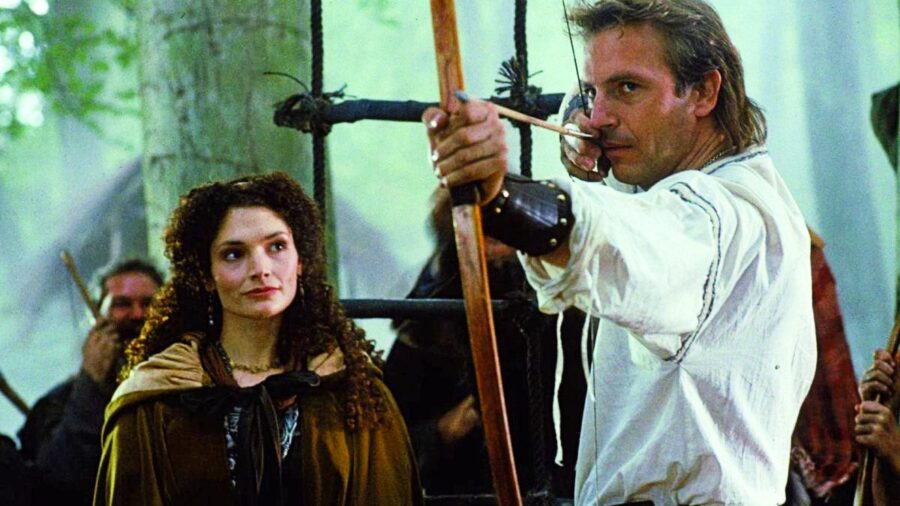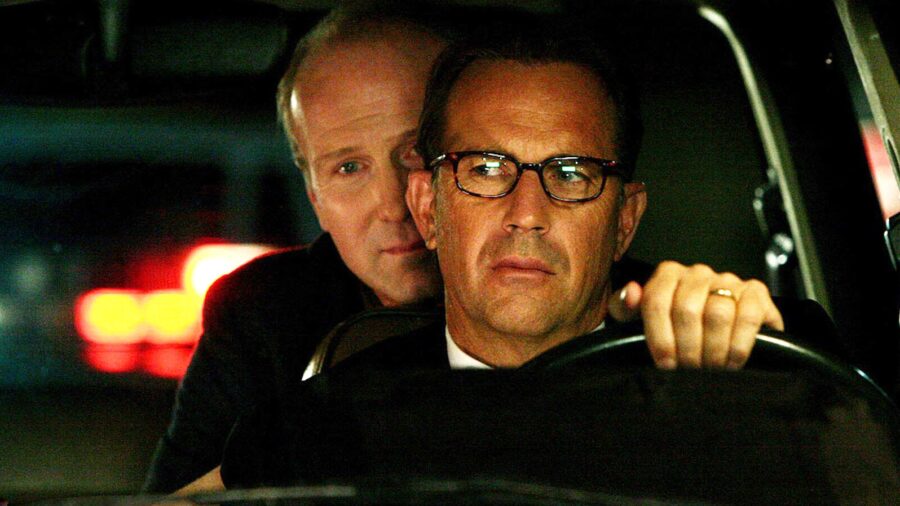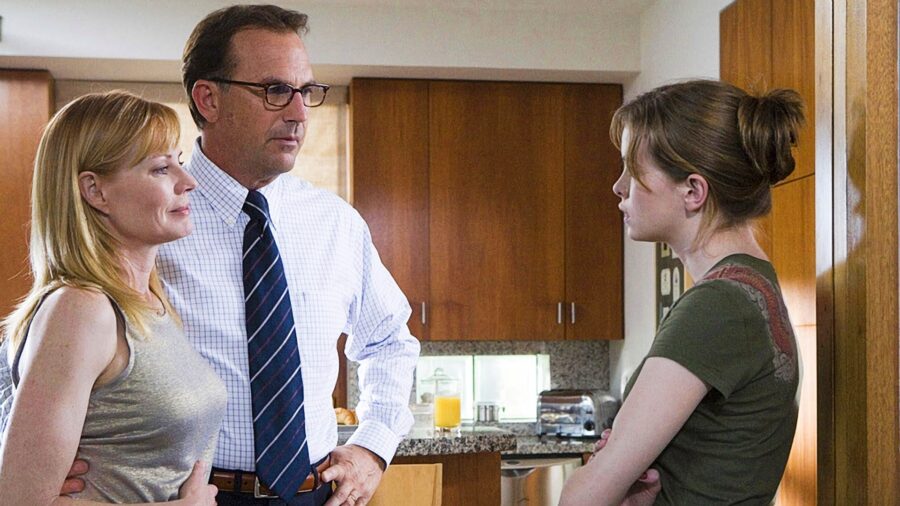Kevin Costner’s Riskiest Movie Was His Darkest
Kevin Costner took on one of his strangest and darkest roles when he needed a hit film, and this oddity is what resulted.
This article is more than 2 years old

If Tom Hanks has any competition for the role of America’s Dad, it would be Kevin Costner. Even in his 1990s heyday, Costner had the vibe of a young, overly earnest paternal figure. Movies that overtly underlined this, like the 1989 baseball/father issues film Field of Dreams, made Costner a symbol of a kind of corn-fed, slightly awkward, theoretically hunky American masculinity. He carried that through a gold run between 1987’s The Untouchables through to 1995’s Waterworld, earning Academy Awards and starring in and directing enormous blockbusters. Costner was basically the King of Hollywood, up until he suddenly wasn’t. It can be argued that he started to lose the goodwill of the American masses when he started to play roles that were less “aw shucks, Kansas” and more “mutant fish-man drinking his own recycled urine.” That left Costner in a cinematic wilderness for many years. Right in the middle of that period, Kevin Costner made perhaps the strangest movie of his career: Mr. Brooks.
If that movie does not sound familiar, it’s because a movie in which American Everyman Kevin Costner plays a serial killer who takes standup comic Dane Cook under his wing while multimillionaire police detective Demi Moore hunts them both didn’t really hit audiences in the same way as, say, Dances with Wolves. Oh, also Costner has an imaginary friend played by William Hurt who tells him to kill people.

Mr. Brooks was a big risk of a movie for Kevin Costner. While Waterworld and The Postman are, in retrospect incredibly ambitious movies in which Costner chose to turn his back on his natural charm and do Clint Eastwood cosplay, they also had the weight of his near-perfect decade of hits. Mr. Brooks came out in 2007, when Costner was in the doldrums of his career, between the forgotten action-thriller The Guardian and the equally forgotten political satire Swing Vote. If Costner ever needed a boost in his career, it was right around then. But instead of taking a safe role, he chose Mr. Brooks, a movie that is basically the opposite of everything that America had loved about him.
In a way, Kevin Costner is at his most-Costner in Mr. Brooks. The movie is set in contemporary Portland, Oregon, and Costner is playing an ostensible human; however, he is utilizing all the elements of his cinematic persona while turning them alien and false. As Earl Brooks, an upstanding business owner and family man, Costner presents as a man who knows all the traits he is supposed to have (like compassion and not murdering) and feels none of them. He is constantly acting a role and terrified to let his mask slip, much like Patrick Bateman in American Psycho. However, unlike that other fictional killer, Mr. Brooks hates what he is doing. He is very clearly a person in deep pain, struggling against a compulsion to kill in a highly ritualized fashion that he compares to an addiction. The movie shows Costner going to Alcoholics Anonymous meetings to cope with the never-ending prodding by Marshall (William Hurt, who makes the most of lines like “You get pissed at me because I’m always the one that says go ahead and do murder), the imaginary man who follows him everywhere. Unlike many cinematic serial killers, Mr. Brooks does not like what he does or has no grand vision or ego. He knows it is wrong. He is simply addicted to it.

Mr. Brooks was written by the team of Bruce A. Evans and Raynold Gideon (the former of whom also directed), reportedly with Kevin Costner in mind. It is inspired casting, and the movie does a good job of weaponizing all of Costner’s famous geniality by portraying it as the fragile shell of a deeply tormented and pathetic figure. Costner puts in a fantastic performance as Earl Brooks, but regrettable, the same cannot be said of the rest of the movie. Simply put, it is a disjointed and overstuffed movie whenever it is not focusing on the conservation between Kevin Costner and William Hurt (whose presence in the film is never explained). Demi Moore’s wealthy police detective has a divorce subplot and is being stalked by an entirely separate serial killer; about an hour in, there is a high-octane fight in the back of a speeding van that belongs in an entirely different movie. Dane Cook is playing into his persona as a bro-jock of a jerk, but his fate is obvious as soon as he appears on screen. They are just distractions from what is interesting here, which is Kevin Costner as an addict-murderer.
Mr. Brooks is a fantastic character piece that is dragged down by the weight of unnecessary subplots. Reportedly, Bruce A. Evans and Raynold Gideon had a series of sequels in mind and had initially conceived the project as a television series; it seems instead of streamlining, they simply tried to stuff all their ideas into this one film. The movie came and went with middling reviews and moderate box office returns. It neither pulled Kevin Costner out of his slump nor pushed him deeper. It would take until 2012’s Hatfields & McCoys miniseries to bring him back, which would lead directly to his current heavyweight TV status in Yellowstone. But Mr. Brooks is one of the strangest and riskiest roles Kevin Costner ever took on, and it would be great to see him taking on more of that.












